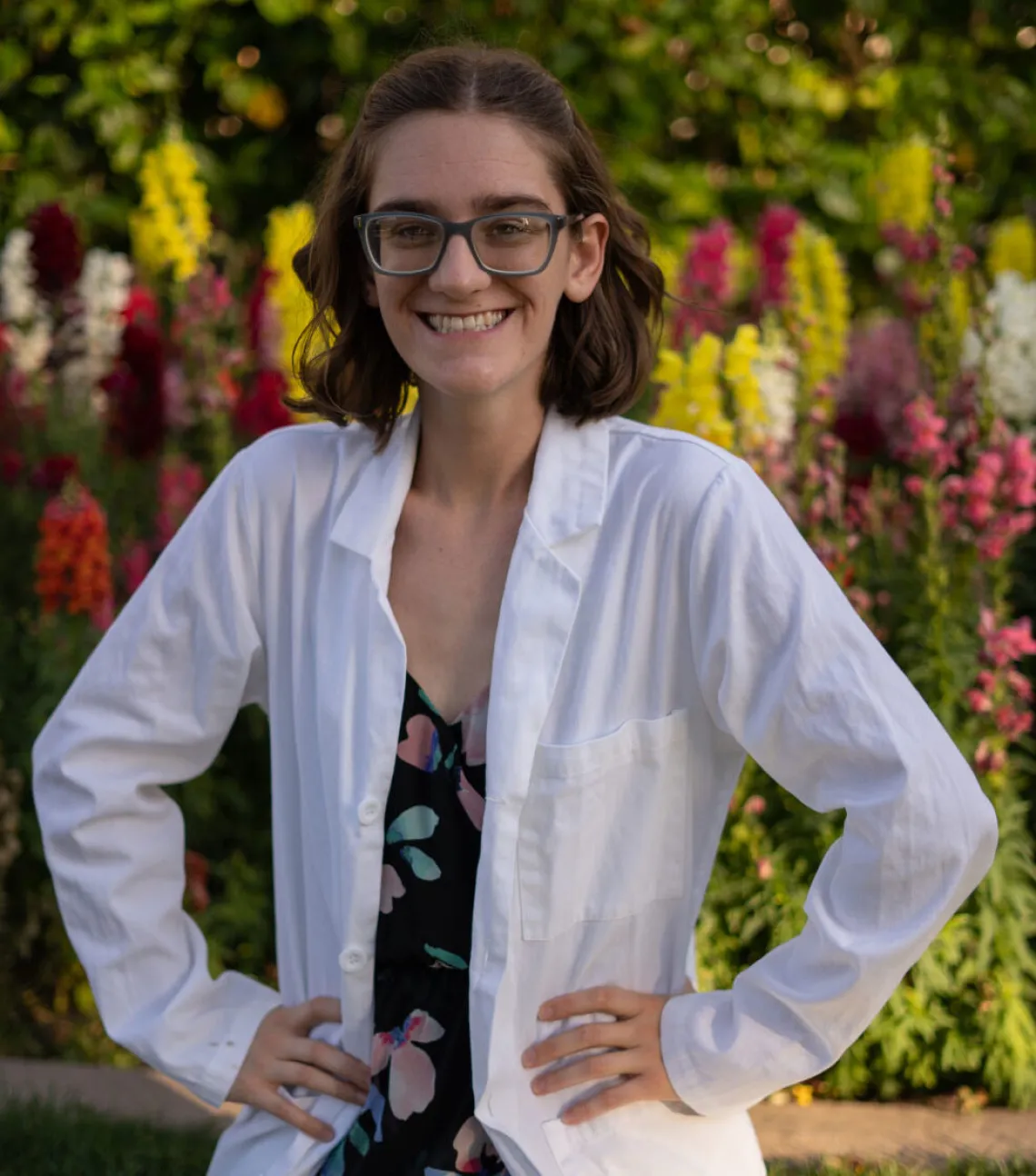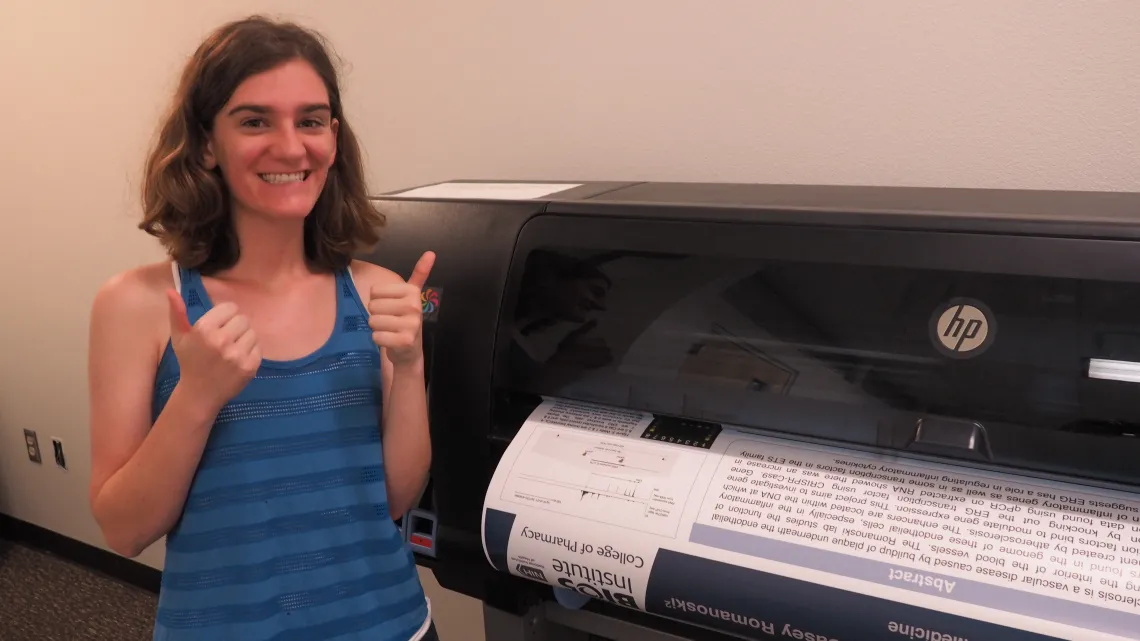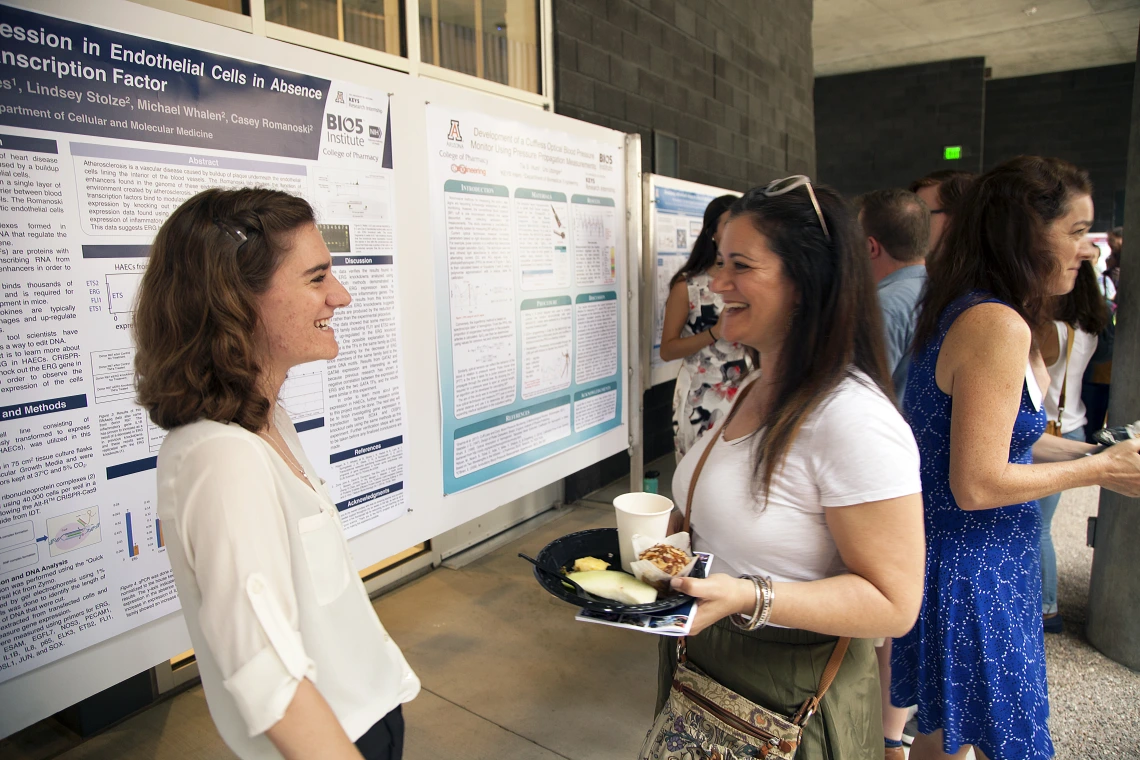Finding a voice in the lab: Destiny Hodges (KEYS ‘17)
Experiences in biomedical research helped local Tucsonan Destiny Hodges break out of her shell and sparked a passion for research product development.

Destiny Hodges
In San Diego, Destiny Hodges has found a great fit, both inside and outside of work.
A University of Arizona alumna with a biomedical engineering degree, Hodges was once an outdoors-loving, shy high schooler when she participated in the BIO5 Institute’s KEYS Research Internship program in 2017.
“It was that initial step in talking about science with other people,” said Hodges about KEYS. “I learned that it’s not about being the smartest person in the room, it’s about learning how to collaborate.”
Today, Hodges works in the manufacturing group at TriLink Biotechnologies, a biopharmaceutical company in California, and enjoys paddle boarding along the Pacific coast.
Learning the basics of DNA
Her AP biology teacher while at Cienega High School, Joshua Farr, enthusiastically encouraged Hodges to pursue the immersive BIO5 Institute summer program. Like many students, she was excited but unsure of what to expect.
Generally interested in biomedical research, Hodges was paired with faculty mentor Casey Romanoski, an associate professor of cellular and molecular medicine in the UArizona College of Medicine — Tucson and BIO5 member.
The Romanoski lab studies how genetic and environmental factors cause certain individuals to be predisposed to complex diseases, including heart problems such as atherosclerosis and hypertension. Using sequencing technology and computational approaches, Romanoski and her lab study molecular patterns within the cells to look at DNA and gene expression.
"Although she began with very limited laboratory skills, Destiny quickly mastered techniques that enabled her and a graduate student in the lab to elucidate how the transcription factor ERG regulates target gene expression in human endothelial cells," said Romanoski. "The KEYS program not only gave Destiny a realistic glimpse into research, but also let her skills as a potential scientist shine."

Destiny Hodges prepares her scientific poster for the KEYS Research Internship showcase, where she will present her project to other interns, faculty mentors and Arizona community.
KEYS
Hodges’ main project during the KEYS Research Internship was helping the lab optimize protocols for CRISPR. This technology is used to modify the DNA and genes of organisms to accelerate diagnostic research.
“I learned a lot of the basics of lab work that carried over into my undergraduate research positions,” said Hodges. “And even what I do now, building custom mRNA for customers, is related to what I first started working on during my KEYS Research Internship.”
Gaining confidence in laboratory skills
After her KEYS experience, Hodges explored different University of Arizona research opportunities, including a position at a UArizona School of Plant Sciences lab and participating in the Undergraduate Biology Research Program.
Still drawn to biomedical research, Hodges found a student position at the BIO5 Media Facility, which provides microbiological media, dishwashing, and intellectual support to researchers so they can more quickly move their research forward.
“It was a great experience for me to be in the BIO5 Institute space,” Hodges said. “I got a lot of facetime with different researchers around the building, especially delivering different materials and products, while learning lab best practices.”
Her supervisor and production manager at the BIO5 Media Facility, Jody Nyboer, remembers her for her quiet self-confidence.
“I chose Destiny to make the viral transport medium that was used to make the initial COVID-19 tests. Destiny understood the importance of this project, rising to the challenge of making it correctly each and every time," said Nyboer.
Finding a place in biotechnology
Hodges reflects on how her research experiences at the BIO5 Institute and UArizona helped her forge a path toward an industry career.
“Public speaking was never my strong suit. But I learned how to present complex topics effectively in a few sentences.” Hodges said. “Diving deep into research topics also prepared me for learning about different areas of science.”

Destiny Hodges gained confidence in both her research and communication skills during her 2017 KEYS Research Internship.
KEYS
That exposure solidified her passion for working in a laboratory, ultimately helping her find a job in the biotechnology industry soon after graduation. After casting a wide net, she found her current position in at TriLink Biotechnologies in San Diego where she's worked for the past two and a half years.
Her company custom-modifies nucleic acids to help with therapeutic, vaccine, diagnostic, and biopharmaceutical breakthroughs. As a manufacturing associate, Hodges works with a cross-functional team that follows standards and protocols to provide high-quality products to scientists. She’s interested in pursuing a master’s but feels passionate about staying in research and development.
“I want to try and keep a close connection with science as much as possible," said Hodges.

